So, you finally made and kept that appointment for a hearing evaluation. Congratulations! You took that all-important first step toward a better quality of life.
First and foremost, be sure your hearing evaluation was done by an audiologist who holds board certification from the American Board of Audiology. A hearing evaluation is a test which allows this professional to determine the type and degree of hearing loss. Hearing evaluations are simple, quick, and painless, providing the information needed to make recommendations to improve the quality of life — YOUR life.
Ah, but the results of that evaluation were not…what you were hoping? No earwax or infection…instead you’ve been told you are a hearing aid candidate. Finding the best hearing aids is a process that is unique to each person with hearing loss. It is important to work closely with your audiologist to determine which hearing aids best fit your hearing loss, lifestyle, listening needs and budget. Take heart. You’re going to love what you hear. You may not, however, love the price tag, but please keep reading. Hearing aids are a worthy investment for you and those you love.
As with most things in life, you get what you pay for. Most hearing aids range in price from around $1000–$3000 per instrument. And remember that in most cases you will be buying a pair. Whether we’re talking about cars, clothes, or hearing aids, quality costs more. We’re not talking about those ear amps they sell on TV so “you can watch TV without disturbing your partner. ONLY $14.95!!!!” Such personal sound amplifiers (PSA) are devices that are intended for people with no hearing loss to aid in various recreational activities, not to amplify sound for those with documented hearing loss. The FDA recently felt it necessary to clarify for consumers the difference between a PSA and a hearing aid in order to protect consumers. Unlike hearing aids, PSA devices are one-size-fits-all, and a recent study at Michigan State University determined that PSA devices were directly correlated to low consumer satisfaction and are potentially harmful to hearing.
A common question among consumers is “which hearing aids are best?” The best hearing aids are those chosen based on your unique hearing loss, hearing needs, and lifestyle issues. Work with your audiologist to prioritize your needs, wants, and budget, and let them guide you in selecting the best hearing aids for you.
So, what things should you consider when shopping for your first set of hearing aids, or when looking to replace the pair that you’ve enjoyed all these years? Which features are important to you? Live in a hot and humid climate and enjoy being outdoors? Hitting the tennis courts each morning? Or maybe you walk or run with friends. In general, the more active lifestyle you lead, the more sophisticated hearing aid you will need. If you lead an active life — playing golf, jogging in the morning, or just out and about — buying hearing aids that reduce wind noise and protect against moisture buildup are worth the extra money. If you lead a quiet, sedate life, you may not need extra technology to get you through the day.
Call it self-image or self-confidence, there’s a stigma in some people’s minds about hearing aids. Concerned about cosmetics? With today’s technology, no problem! Hearing aids come in a variety of styles and sizes for those looking for a discreet fit.
Completely-in-the-canal (CIC) hearing aids slip into the ear canal and are nearly invisible. Custom made hearing aids block natural sound, and often create a stuffy ear feeling, but the latest open ear devices are light and powerful. These units are remarkably cosmetically appealing, utilizing a thin transparent tube to deliver sound into the ear. So, if you’re concerned about how others will see you with hearing aids, the cosmetic appeal of an open fit is ideal.
Are you glued to a cellphone a couple of hours per day on the road? Does your PDA ring every 10 minutes? Do you have a music device like an iPod you enjoy listening to? Today’s hearing aids offer wireless connectivity to a range of Bluetooth compatible devices, so you can stay in touch with family, friends, and the folks back in the office using your hearing devices. You can now use your cellphone hands free, routed directly through your hearing instruments! Not exactly your grandmother’s hearing aid! On the other hand, if you still think a Blackberry is simply a tasty fruit, why spend extra for wireless connectivity?
So forget the PSA gizmos if you have a diagnosed hearing loss. They can make a bad situation worse. If you can afford the top of the line, there are some fantastic technologies available. But if you are on a budget, know there are still many options for you, and your decision should be made based on exactly what you need and will use.
You need and want to enjoy the sounds around you everyday, and that’s something you just can’t put a price on. You’re going to love what you hear.

